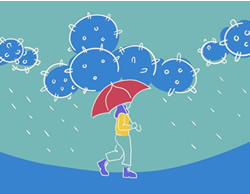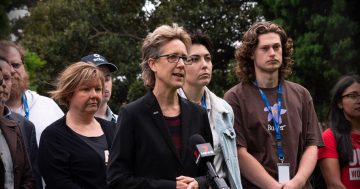Erin Lyons* says the coronavirus crisis is set to produce another blow for young Australians whose employment prospects are suffering thanks to the pandemic.
 Young Australians in their 20s and 30s could be faced with years of poor career prospects, including low-paying and low-skilled jobs.
Young Australians in their 20s and 30s could be faced with years of poor career prospects, including low-paying and low-skilled jobs.
A new Productivity Commission report released on Monday details how young people struggled to find jobs in their desired occupation even before the COVID-19 pandemic.
The report looked at the various types of jobs young people found after graduating from university or vocational education and training between 2001 and 2018.
According to the report, which focused on the decade following the global financial crisis, young people’s job prospects and the growth in their salaries were worse compared with those aged 35 and older and young people prior to 2008.
For instance, young Australians suffered the largest increases in unemployment, and the biggest falls in jobs, since the pandemic began.
“Many young people have experienced unemployment recently and are likely to face a reduced set of job opportunities as a result of the recession,” the report states.
“This scarring could last some time.”
While young people’s career prospects might have recovered once the labour market improved, such improvement is now unlikely for some time given the COVID-19 crisis, the report found.
“The fact that the weak labour market lasted for a decade means that many young workers will face long‑term scarring,” the report reads.
For instance, last month the jobless rate for those aged between 20 and 24 climbed to 13.9 per cent, and for those aged between 25 to 34 it rose by almost three percentage points to 7.5 per cent.
However, there was good news for those aged between 35 and 44, with the unemployment rate lifting by 1.4 percentage points to 5.2 per cent.
Many young workers who took a job they may be overqualified for were labelled “unlucky”, according to the report that says the number of “unlucky” workers have increased over time.
“We see no evidence of improved likelihood of transitioning to better outcomes, suggesting that poor initial outcomes are likely to have long term effects on one’s occupation,” the report says.
“If anything, when we examine young graduates between 2013 and 2015, people who found work in lower quartiles of the score distribution were more likely to remain in those quartiles.”
Wage growth for those younger than 34 almost halved after the global financial crisis (GFC) and continued to fall for several years post-2012.
For those 35 and older, wage growth slowed.
For instance, growth in wage rates for workers aged between 20 and 34 averaged 1.46 per cent each year before the GFC but slowed to 0.86 per cent annually until 2012 and declined by 0.08 per cent per year afterwards.
This is compared with growth in wage rates for workers aged between 35 and 64 that averaged 1.7 per cent per year before the GFC, 1.36 per cent each year until 2012 and 0.62 per cent afterwards.
For workers who remained in their job for a year or more, wage growth was actually faster for younger employees than it was for older workers, the report found.
There had also been an increase in the number of Australians graduating from university during the last decade, meaning there is more competition, Commissioner Catherine de Fontenay said.
And the pandemic is set to make landing a job even more challenging.
“While some young people might choose to pursue further study and return to the job market when conditions are more favourable, this paper suggests that if labour markets continue to be weak, additional education can lead to a mismatch between existing job opportunities and aspirations,” the report states.
The report comes just a week after Treasurer Josh Frydenberg revealed the unemployment rate was likely to hit 9.25 per cent by December, meaning one in 10 Australians will be out of work.
*Erin Lyons is a reporter for NCA NewsWire at News Corp Australia. She can be contacted on Twitter @erinmaylyons.
This article first appeared at news.com.au.











